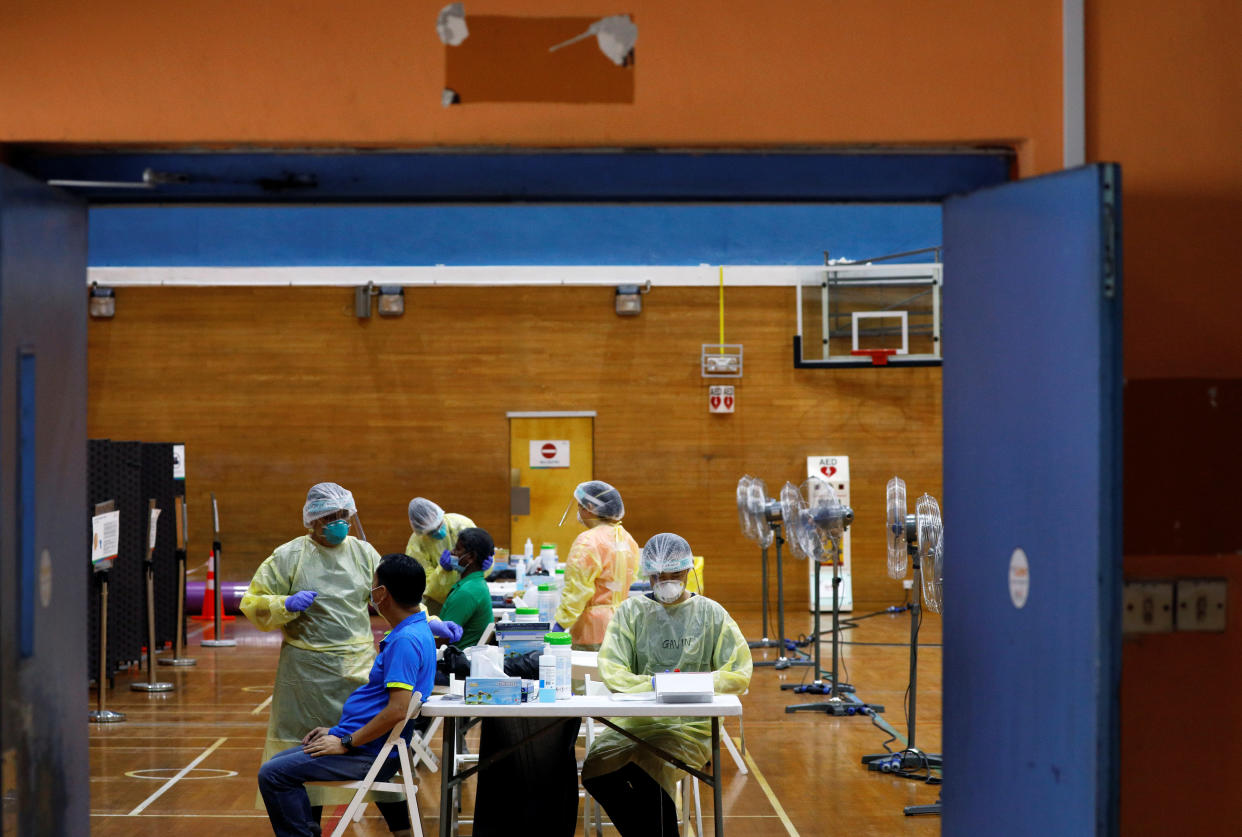COMMENT: Pandemic politics and Singapore's general election

As Singapore enters the second phase of its reopening on Friday (19 June), it is becoming clearer by the day that the Prime Minister and his team are working towards a decisive election victory. The drumbeat is getting louder and blurring the lines between party and government as the date of the general election, which pundits say is likely to be held in July, gets closer. This is pandemic politics at work, with ministers talking daily about how the government is dealing with the impact of COVID-19.
The ongoing series of national broadcasts on Singapore’s post-coronavirus future are like those given at election rallies, with recurring themes: This is the worst crisis we have ever faced, the country has the financial resources to throw at the problem and Singaporeans have the resilience to come out of it as one united people. And oh, not to forget the compliments being showered on nurses, doctors and others who are working tirelessly and risking their lives on the front lines.
There are two factors at play here. Firstly, the ministers who have been anointed to take over the running of the country need to show that they are in control and have the support of the older leaders. Secondly, this is the last election for Lee Hsien Loong as Prime Minister; he will want to go out with a bang, especially after a dismal polls performance in 2011 where his party, for the first time, lost a Group Representation Constituency.
But an invisible enemy had other plans. The COVID-19 pandemic stormed into Singapore, and the government’s misstep of not anticipating the implications of the guest workers’ crowded living conditions became the single most important cause of the spike in infections. If not for that, we would already be moving about much more freely, rather than being stuck in our homes most of the time.
Still, the 4G leaders are a fortunate lot. They are sitting on a golden foundation that the first generation of leaders toiled to leave behind for them. The nest egg built and jealously guarded by Lee Kuan Yew and the subsequent generations of People’s Action Party (PAP) leaders has come in handy to help the country tide over the crisis. Singapore’s international brand image as a country where everything works, again a legacy left behind by Lee’s team, is also being cashed in on as the 4G leadership works to keep world supply chains open.
Imagine the honey pot a grandfather leaves behind for his family to be used in times of need. This is what the 4G leaders have been gifted.
The value of diplomacy

The intangible value of international relations that have been assiduously built up over the years has not gotten much attention. Foreign Minister Vivian Balakrishnan touched on it briefly in a recent interview when he said: “We are all living off accumulated diplomatic capital, diplomatic capital because we’ve met each other….If we had never met before, we never had a measure of the man or woman, I think all these electronic means of communication would be far less effective.”
But Senior Minister Teo Chee Hean was not as optimistic when he said in his national broadcast last week that the Foreign Ministry must be able and agile. So the question is: Do our diplomats, who have ridden a gravy train of relative peace and growth, have the instinct and skill that their predecessors like Tommy Koh, S R Nathan and Kishore Mahbubani displayed, to walk that hazardous line where global rivals fight for military, economic and political power?
On the diplomatic front, this is the key question: With a US looking inwards and a China whose geopolitical intentions show ominous dark clouds, do our diplomats have the smarts to fight this new war?
The story goes back to the 1970s when the mighty military forces of the United States lost the war with a tiny Vietnam, leaving stalwarts like the thundering former Foreign Minister S Rajaratnam persuading the democratic world not to leave small nations in the ASEAN region in the lurch. The fear was that communist Vietnam, flush from its victory, would send its troops down south to take over Thailand, Malaysia and Singapore. Rajaratnam and his diplomats managed to convince the big powers, especially the US, that they should continue to be a military bulwark in this region.
The prosperity and peace we enjoy today was the result and we have not looked back since.
The harsh truths of a new world order
To date, the performance of the 4G leaders in handling the pandemic, despite initial successes, has been far from exemplary. Its messaging has been contradictory (from advising Singaporeans not to wear masks unless they are unwell to making it mandatory) and sometimes perplexing (Manpower Minister Josephine Teo declaring that no migrant worker has asked her for an apology).
With an election imminent, the ground is far from sweet. Now is the time for the Opposition to change its script, stop attacking for the sake of attacking and get the government to reveal the harsh reality of a new world order.
With challenges on the external front and a myriad of domestic issues, ranging from the need for foreign talent to reshaping the major sectors of the economy, do the 4G leaders have the wherewithal to guide Singapore through the greatest crisis of a generation?
Singaporeans will soon be asked to decide on a new leadership team. They must be convinced that Heng Swee Keat and co have the right stuff to secure Singapore’s future in a post-COVID-19 world.
P N Balji is a veteran Singaporean journalist who was formerly chief editor of Today, as well as an editor at The New Paper. He is currently a media consultant. The views expressed are his own.
Related stories
COMMENT: Singapore’s treatment of foreign workers is a stain we can do without
COMMENT: Singapore’s Big Bang Budget 2020 silent on that one big thing



